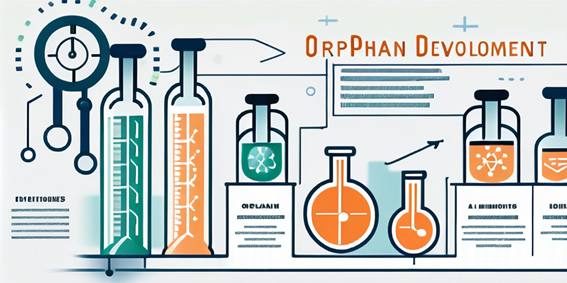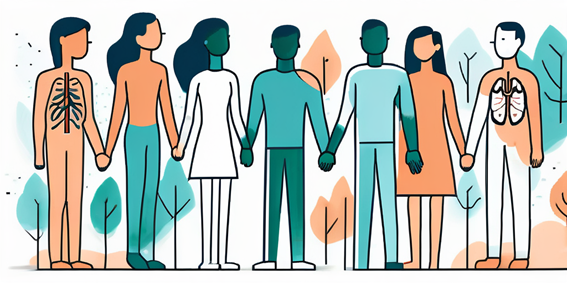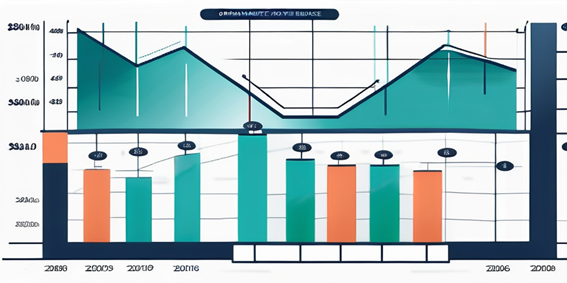Orphan drugs have emerged as a vital component in the treatment of rare diseases, providing hope and support to patients who once had limited options. The development and availability of these drugs have revolutionized the landscape of rare disease treatment, offering new possibilities and presenting unique challenges for pharmaceutical companies, healthcare providers, and patients alike. To fully understand the significance of orphan drugs, it is crucial to delve into their history, comprehend the impact of rare diseases, and appreciate the importance of regulatory pathways and market potential. Furthermore, exploring future innovations and trends can shed light on the evolving landscape of rare disease treatment.
The journey of orphan drug development traces back to the early 1980s when a notable piece of legislation, the Orphan Drug Act, was enacted in the United States. This legislation aimed to incentivize pharmaceutical companies to invest in the development of drugs for rare diseases by offering financial incentives, market exclusivity, and streamlined regulatory processes. The Orphan Drug Act’s success paved the way for similar initiatives across the globe, propelling research and development efforts in the field of rare disease treatment.

The early stages of orphan drug development faced numerous obstacles, including high costs, limited patient populations, and diagnostic challenges. However, advancements in technology, collaborations among researchers, and increased awareness among healthcare professionals gradually facilitated the identification and validation of potential orphan drug candidates.
As the field of orphan drug development continued to evolve, researchers and pharmaceutical companies began to explore innovative approaches to address the unique challenges associated with rare diseases. One such approach was the repurposing of existing drugs. By repurposing drugs that were already approved for other indications, researchers could potentially bypass some of the lengthy and costly stages of drug development, accelerating the availability of treatments for rare diseases.
Additionally, the emergence of precision medicine and personalized therapies brought new hope to the orphan drug development landscape. Precision medicine focuses on tailoring treatments to individual patients based on their genetic makeup, lifestyle, and other factors. This approach has the potential to revolutionize rare disease treatment by targeting the underlying causes of the disease, rather than just managing symptoms.
Collaborations between academia, industry, and patient advocacy groups have also played a crucial role in advancing orphan drug development. These partnerships have allowed for the pooling of resources, expertise, and patient data, enabling researchers to gain a deeper understanding of rare diseases and develop more effective treatments. Patient advocacy groups have been instrumental in raising awareness about rare diseases, advocating for improved access to treatments, and providing support to patients and their families.
Furthermore, the regulatory landscape surrounding orphan drug development has continued to evolve to ensure the safety and efficacy of these treatments. Regulatory agencies have implemented specific guidelines and accelerated approval pathways to expedite the development and review of orphan drugs, recognizing the urgent need for effective treatments for rare diseases.
In recent years, breakthroughs in gene therapy and gene editing technologies have opened up new possibilities for orphan drug development. These cutting-edge approaches hold promise for treating rare genetic disorders by correcting or modifying the underlying genetic mutations responsible for the disease.
Looking ahead, the field of orphan drug development is poised for further growth and innovation. Advances in technology, increased collaboration, and a growing understanding of rare diseases will continue to drive progress in the discovery and development of treatments for these often overlooked conditions. With ongoing efforts and continued support, the future holds the potential for improved outcomes and a brighter future for individuals living with rare diseases.
Rare diseases, also known as orphan diseases, encompass a diverse group of disorders that collectively affect a small portion of the population. Despite their rarity, the burden of rare diseases on patients and their families is profound. Rare diseases often have a significant impact on patients’ quality of life, affecting their physical, mental, and social well-being.

Living with a rare disease can be an isolating experience for patients and their families. The rarity of these conditions means that individuals affected by rare diseases may struggle to find support and understanding from others who have similar experiences. This lack of a strong support network can contribute to feelings of loneliness and frustration, making it even more challenging for patients to cope with their condition.
One of the major challenges faced by patients with rare diseases is the delay in receiving accurate diagnoses and adequate care. Due to the scarcity of treatments available, healthcare professionals may not be familiar with the specific symptoms and manifestations of rare diseases, leading to misdiagnosis or delayed diagnosis. This can result in prolonged suffering for patients, as they may undergo unnecessary tests and treatments before finally receiving the correct diagnosis.
Furthermore, the limited understanding of rare diseases poses challenges for healthcare providers in effectively managing these conditions. The lack of research and knowledge about the underlying mechanisms of rare diseases makes it difficult to develop targeted treatment strategies. As a result, patients often have to rely on symptomatic relief rather than addressing the root cause of their condition.
However, there is hope on the horizon for patients with rare diseases. The advent of orphan drugs, which are medications specifically developed for the treatment of rare diseases, brings new possibilities for improved patient outcomes. These drugs are designed to target the underlying cause of the rare disease, offering a more tailored and effective approach to treatment. The development of orphan drugs not only provides hope for patients but also encourages further research and investment in rare disease therapies.
Despite the challenges and limited resources, patients with rare diseases often demonstrate remarkable resilience and strength. They become advocates for themselves and their communities, raising awareness about their conditions and pushing for increased research funding. Through their efforts, they strive to improve the lives of not only themselves but also future generations affected by rare diseases.
An orphan drug is defined as a pharmaceutical agent developed specifically to treat rare diseases. The rarity of these diseases often results in limited commercial viability for drug developers, hence the term “orphan” drugs. The importance of orphan drugs lies in their ability to recognize and address the unmet medical needs of individuals affected by rare diseases.
By focusing on rare diseases, orphan drugs fill critical therapeutic gaps, offering patients access to safe and effective treatment options. The availability of orphan drugs has transformed the lives of countless individuals and families affected by rare diseases, providing hope and potentially extending lifespans. Moreover, the development of orphan drugs may also pave the way for advancements in the understanding and treatment of more prevalent conditions.
Given the unique challenges associated with rare diseases, regulatory agencies worldwide have established specific pathways to streamline the approval of orphan drugs. These pathways aim to expedite the development and availability of effective treatments for patients affected by rare diseases.
In the United States, the Food and Drug Administration (FDA) offers several incentives and expedited review processes for orphan drugs, including accelerated approval, fast track designation, and breakthrough therapy designation. Similarly, the European Medicines Agency (EMA) provides incentives such as fee reductions, protocol assistance, and guidance tailored to orphan drugs.
While the development of orphan drugs fulfills a critical medical need, assessing their market potential presents unique challenges. The small patient populations associated with rare diseases often result in limited commercial opportunities for orphan drugs.
Market assessment for orphan drugs requires careful analysis of the prevalence of the rare disease, the potential number of patients eligible for treatment, and the willingness of healthcare systems to reimburse the therapy. Additionally, factors like pricing, manufacturing costs, and regulatory requirements impact the economic viability of orphan drugs. Despite these challenges, the market potential for orphan drugs continues to grow as the understanding and awareness of rare diseases increase.
As medical research progresses and technology advances, the future of rare disease treatment holds tremendous promise. Innovations such as gene therapies, personalized medicines, and precision medicine approaches are gaining momentum in the field of rare disease treatment.
Gene therapies offer potential cures for rare genetic disorders by modifying or replacing faulty genes. Personalized medicines, on the other hand, aim to tailor treatments based on an individual patient’s genetic makeup, ensuring maximum efficacy and minimal adverse effects. Additionally, the advent of precision medicine, taking into account various factors such as genetic, environmental, and lifestyle influences, holds great potential in advancing treatment options for rare diseases.
Collaborations among stakeholders, including pharmaceutical companies, researchers, patient advocacy groups, and regulatory agencies, play a crucial role in driving future innovation and development. By combining resources, knowledge, and expertise, these collaborations have the power to accelerate progress in rare disease treatment, ultimately benefiting patients worldwide.
In conclusion, the rise of orphan drugs has revolutionized the treatment landscape for rare diseases, offering new hope and possibilities to individuals and families affected by these conditions. The history and evolution of orphan drug development, understanding the impact of rare diseases, and recognizing the importance and challenges of orphan drugs have shed light on this critical aspect of healthcare. Regulatory pathways, market potential assessment, and future innovations all contribute to the ever-evolving field of rare disease treatment. Through continued collaboration and prioritization of rare disease research, we can continue to push boundaries and improve the lives of those affected by rare diseases.